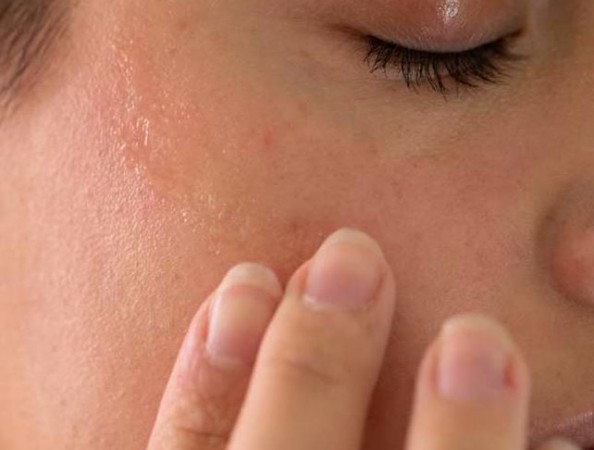
The arrival of winter brings with it a change in weather, marked by colder temperatures and chilly winds. While the cool breeze may provide relief to the body, it can also wreak havoc on the skin, leaving it dry, lifeless, and susceptible to allergies. The drop in temperature and humidity during winter can strip the skin of its natural oils, leading to issues such as dryness, flakiness, and even allergic reactions.
Understanding Winter Skin Woes
Impact of Cold Weather on Skin
In winter, the cold weather tends to deplete the skin of its moisture, making it prone to dryness and dullness. Harsh winds and low humidity levels contribute to the loss of natural oils, resulting in rough and parched skin. The use of hot water for bathing may provide temporary warmth but can further exacerbate skin dryness by stripping away essential oils.
Common Skin Issues in Winter
Dryness and Flakiness: The lack of moisture in the air can lead to dry and flaky skin. It becomes essential to adopt a skincare routine that focuses on hydration and nourishment.
Skin Allergies: The cold weather can make the skin more susceptible to allergies. Irritants present in the environment can trigger reactions, causing redness, itching, and discomfort.
Effects of Hot Water: Excessive use of hot water can strip the skin of its natural oils, leaving it dry and devoid of essential moisture. It is crucial to find a balance between warmth and skin-friendly practices.
Winter Skincare Tips
Choosing the Right Bathing Habits
Moderate Water Temperature: Avoid using extremely hot water for bathing, as it can remove the natural oils from the skin. Opt for lukewarm water to keep your skin comfortable and hydrated.
Limit Bathing Time: Prolonged exposure to water can contribute to skin dryness. Keep your showers short and sweet to prevent excessive moisture loss.
Moisturizing Routine
Hydrating Moisturizers: Choose moisturizers that are rich in hydrating ingredients such as hyaluronic acid, glycerin, and ceramides. Apply the moisturizer immediately after bathing to lock in the moisture.
Facial Oils: Incorporate facial oils into your skincare routine. These oils help in restoring the skin's natural barrier and preventing moisture loss.
Fruit Masks for Winter Skincare
Banana and Yogurt Face Mask
Bananas and yogurt are not only beneficial for your health but also work wonders for your skin. Bananas are packed with vitamins and minerals, including thiamine, riboflavin, niacin, folate, vitamin A, vitamin B6, iron, calcium, magnesium, and potassium. When combined with yogurt, these ingredients create a hydrating and nourishing mask.
How to Prepare:
Mash half a banana and mix it with a tablespoon of honey and a tablespoon of yogurt.
Apply the paste to your face and leave it on for 15 minutes.
Rinse off with lukewarm water.
Papaya Face Mask
Papaya is a powerhouse of nutrients beneficial for both your body and skin. It contains calcium, vitamin B1, vitamin B3, vitamin B5, vitamin E, and vitamin K, along with other essential nutrients. A papaya face mask can hydrate and rejuvenate your skin, leaving it with a radiant glow.
How to Prepare:
Mash 2 tablespoons of ripe papaya in a bowl.
Add 1 tablespoon of raw milk and 1 tablespoon of honey to the mashed papaya.
Mix well and apply the mask to your face for 15 minutes.
Rinse off with plain water.
Additional Winter Skincare Practices
Humidifier Usage
Investing in a humidifier can be a game-changer for winter skincare. Humidifiers add moisture to the air, preventing the skin from drying out. Place a humidifier in your bedroom to create a more skin-friendly environment.
Stay Hydrated
While external skincare is crucial, internal hydration is equally important. Ensure you drink an adequate amount of water throughout the day to keep your body and skin hydrated. Herbal teas and warm water with a slice of lemon can also contribute to your daily fluid intake.
Protective Clothing
Wearing appropriate clothing can shield your skin from harsh winds and cold temperatures. Opt for layered clothing to trap body heat and protect your skin from the external elements. Don't forget to cover your hands and face with gloves and scarves.
Lip Care
The delicate skin on your lips is prone to dryness and chapping during winter. Use a lip balm with moisturizing ingredients like shea butter or coconut oil to keep your lips soft and supple.
Exfoliation
Regular exfoliation helps in removing dead skin cells and promoting cell turnover. Choose a gentle exfoliator suitable for your skin type and use it once or twice a week to maintain a healthy complexion.
Taking care of your skin during the winter season requires a thoughtful and consistent approach. By adopting a skincare routine that includes hydrating practices, the use of moisturizers, and the application of fruit masks, you can combat the dryness and keep your skin glowing even in the coldest months. Embrace these tips, and let your skin radiate health and vitality throughout the winter season.
Tragic Toll: NEET Aspirant Becomes 28th Student to Die by Suicide in Kota This Year
Are Disturbing Nightmares Keeping You Awake? Follow These Steps
According to experts, know which of the two milks is more healthy and beneficial